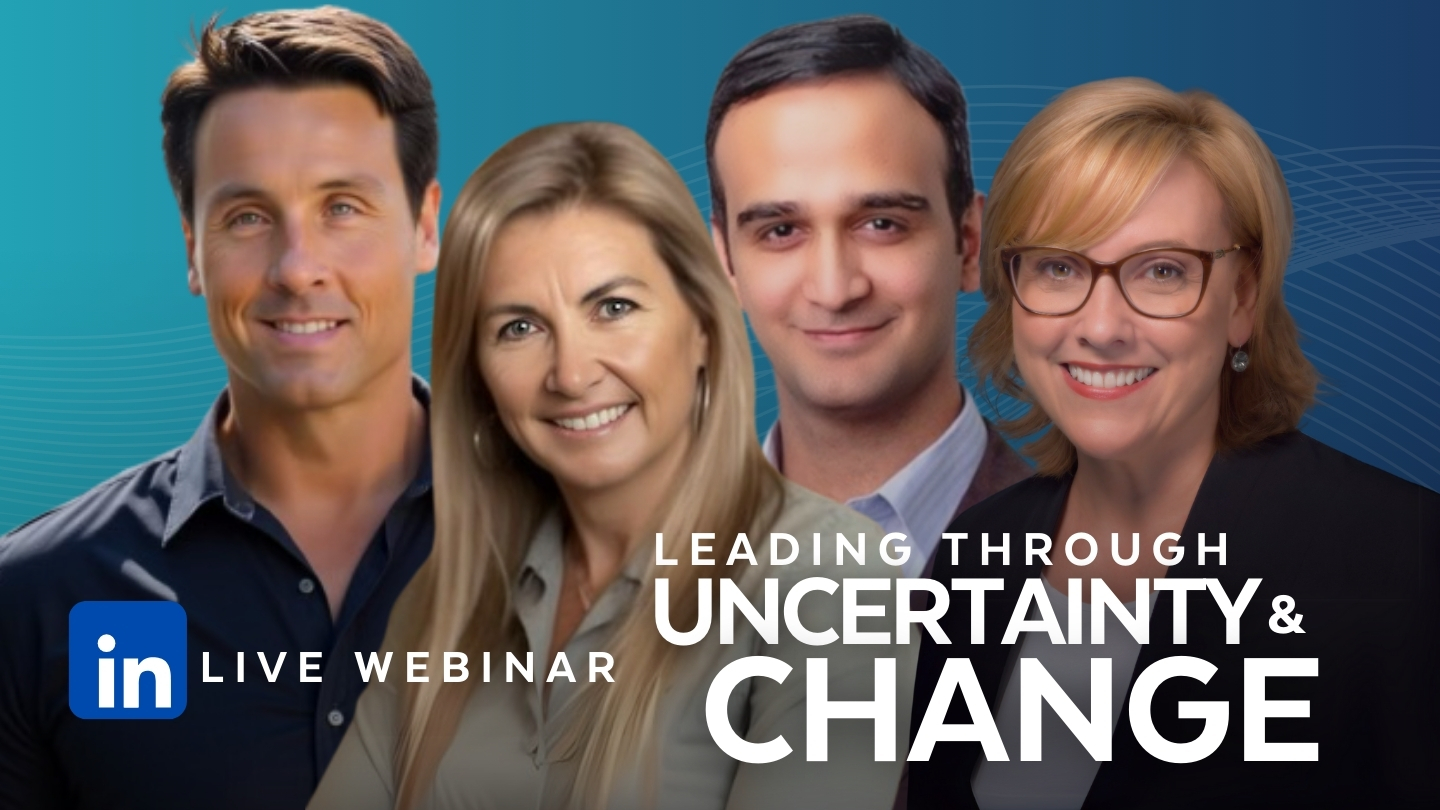As organizations grapple with an era of relentless change and unpredictability, one thing is becoming clear: the most successful organizations will be those that master human psychology and create environments where people are able to contribute, innovate, and grow.
In this shifting landscape, leaders are under increasing pressure to guide their teams through uncertainty while maintaining engagement and performance. The question is no longer if workplace culture must evolve—but how leaders can shape this transformation effectively.
Getting Back to the Fundamentals
To take a step back and cut through the noise, some fundamental truths stand.
Organizational growth and success is governed by collective team performance, which is determined by the effectiveness of team members to be productive, contribute, collaborate, and innovate.
But what lies at the heart of a high-performing team? The answer is rooted in the fundamentals of the brain. Scientific research has consistently shown that high-performing teams thrive when their core brain needs—security, autonomy, fairness, esteem, and trust—are met. These needs form the foundation of psychological safety, enabling individuals to contribute freely, take risks, and drive innovation.
By understanding and addressing these fundamental brain needs, leaders can help their teams build resilience, navigate uncertainty, handle challenges, and sustain peak performance. The ability to think creatively, collaborate effectively, and remain engaged is directly tied to how well leaders foster an environment that aligns with these innate human drivers.
The Future Is Uncertain, But…
The need for workplace environments that encourage contribution and innovation has never been greater. And we’re going to have to think and work differently to accomplish it. Here’s some ideas:
1. Shift the Language, Not the Mission
- Rather than focusing on rigid compliance programs, emphasize belonging, respect, and psychological safety as key components of workplace culture.
- Frame discussions around trust, engagement, and performance rather than broad organizational mandates.
2. Align with Business Outcomes
- Executive teams respond to data. Connect workplace culture efforts to tangible business outcomes such as increased productivity, improved decision-making, and higher retention rates.
- Studies show that psychologically safe teams consistently outperform others. Use evidence-based insights to demonstrate the connection between psychological safety and company performance.
3. Build Psychological Safety as the Foundation
- Psychological safety focuses on core human needs—security, autonomy, fairness, esteem, and trust—making it an essential tool for reducing workplace anxiety and fostering high-performance teams.
- By creating an environment where employees feel comfortable asking questions, taking risks, and expressing themselves, businesses naturally cultivate stronger collaboration and problem-solving.
- Utilize measurable frameworks like the SAFETY™ Model and the PS Pulse™ to assess and track workplace psychological safety alongside business performance.
Psychological Safety: The Great Equalizer
It’s looking increasingly like the future of workplace culture isn’t going to be about traditional programs and approaches—it’s going to be about leveraging neuroscience to enhance performance and positively impact the bottom line.
Brain-based Psychological Safety is the great equalizer, the next evolution of workplace experience that transcends the embattled culture landscape.
We define Psychological Safety as:
The state in which one’s brain needs for security, autonomy, fairness, esteem, and trust are met in a social context. (Academy of Brain-based Leadership)
When this occurs, teams feel safe to take interpersonal risks without fear of negative consequences. This fosters a culture of openness, trust, and continuous learning—critical factors in each and every team, regardless of the organization.
‘You Can’t Manage What You Can’t Measure’
One of the most effective models for fostering psychological safety is the SAFETY Model™, which outlines six core human needs that shape workplace behavior: Security, Autonomy, Fairness, Esteem, Trust and ‘You’ (the wildcard).
An individual can discover their sensitivity to each of these drivers by completing our validated and science-backed SAFETY™ assessment.
This allows them to know their own psychological safety needs. When used inside a workshop, teams learn the spread of needs, where individuals sit within the spread, and how to create ways to meet these needs to improve performance.
We have a cadre of more than 200 Practitioners who are Accredited to use this tool with the people and teams they work with. Check out this case study.
Furthermore, ABL is about to launch the PS Pulse™, a short pulse survey that measures a team’s current Psychological Safety experience, based on the core drivers of SAFETY™. This provides science-backed indicators for time-sensitive, positive action through providing comparative historical data.
If this is of interest to you, put ‘YES PLEASE’ in the comments and we’ll be sure to send you a link for a free PS Pulse™ when we launch.
The Path Forward: Leveraging the Brain to Drive High Performance
Cultural and economic shifts require organizations to evolve how they approach team dynamics. This is an opportunity for leaders to focus on what truly matters—creating workplaces where individuals and teams perform at their best.
For managers and leadership teams, the next steps are clear:
- Speak the language of the brain. Psychological safety applies universally to all employees and helps create an environment where everyone can contribute effectively.
- Measure what matters. Instead of tracking abstract benchmarks, focus on measuring neuroscience backed psychological safety data points and their correlations to engagement, retention, and business performance.
- Make psychological safety a business strategy, not a compliance requirement. Organizations that prioritize psychological safety see improved collaboration, innovation, and long-term success.
As the workplace evolves, the fundamental goal remains unchanged: building environments where people can do their best work. Psychological safety provides the path forward—one that is evidence-based, universally applicable, and essential for innovation and success.
So, is Workplace Culture Shifting?
Absolutely it is. But the future belongs to organizations that understand human psychology and create environments where employees feel safe to contribute, take risks, and innovate.
By embracing the SAFETY™ Model and centering workplace culture around human needs, leaders can build thriving organizations where teams perform at their highest level. The goal hasn’t changed—only the approach has. And psychological safety is the future.
Join the Conversation on Linkedin Live
In a world of constant change, uncertainty can impact productivity, engagement, and well-being—especially for diverse teams. This LinkedIn Live session will give you practical neuroscience-backed tools to foster resilience, emotional regulation, and psychological safetywithin your teams.
Featuring insights from Leonie Hull, Dr. Dan Radecki, and expert panelists, we’ll also introduce PS Pulse, a groundbreaking tool that measures team psychological safety.
📅 Date:Wednesday, March 26
⏰ Time:3 PM PT | 6 PM ET
📍 LinkedIn Live
Join the conversation and learn how to navigate uncertainty together!
REGISTER HERE





